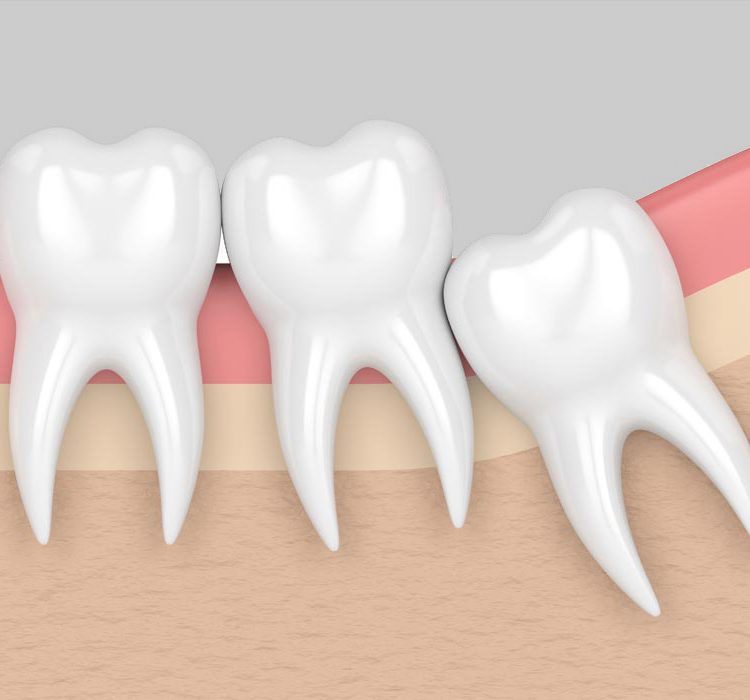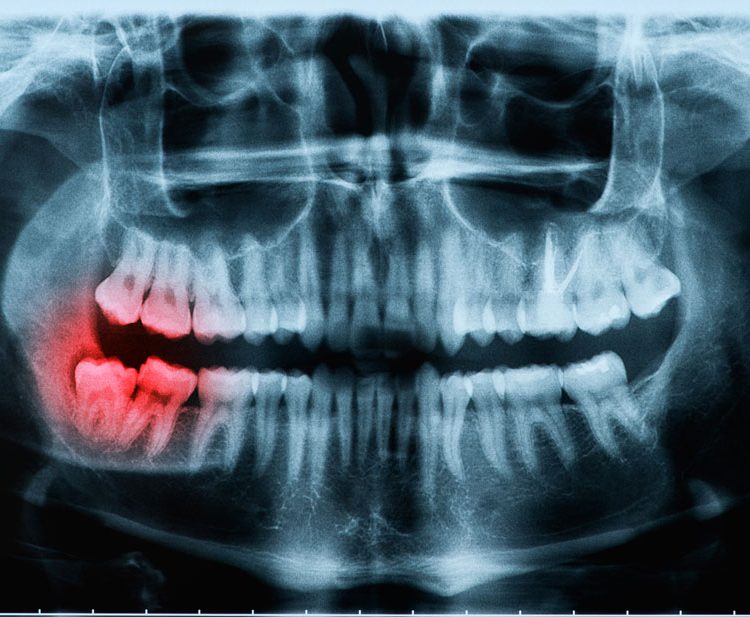WISDOM TEETH
What Are Wisdom Teeth?
Wisdom teeth are the four third molars located at the back of your mouth. While most people have all four wisdom teeth, some individuals may not develop one or more of them. In ancient times, wisdom teeth were thought to help our ancestors break down coarse foods like roots and leaves. However, as human diets and jaw structures evolved, these teeth have become less useful.
Why Should You Remove Wisdom Teeth?
Wisdom teeth are often removed due to the pain and discomfort they can cause. They may press against neighboring teeth or lack sufficient space for proper growth. Serious complications that may arise include:
- Cyst formation, leading to jaw damage
- Eruption of gum tissue, resulting in infection and/or inflammation
- Damage to adjacent teeth
- Misalignment of teeth
- Cavities caused by swollen gums
When Should You Remove Wisdom Teeth?
Wisdom teeth are typically removed in early adulthood, usually between the ages of 18 and 25, though this can vary by individual.

Avoid Future Infections
Removing your wisdom teeth can help prevent a variety of complications down the line.Conscious Sedation
We prioritize your comfort, ensuring a virtually pain-free experience.Quick Procedure:
The extraction procedure typically lasts less than one hour.Specialist Care:
Your extraction will be performed by an experienced specialist.
During the Surgery
At the beginning of the procedure, your dental professional will administer anesthesia to numb your mouth. The surgery is conducted in a safe and professional manner, usually taking less than an hour
Post-Surgery Care
Recovery experiences vary for each individual. Most people report little to no pain immediately following the extraction, although some swelling and mild discomfort may occur in the days that follow. Here are some tips for a smoother recovery:
- Apply an ice pack to your jaw to reduce swelling
- Consume soft foods, such as soup and pasta
- Stay hydrated by drinking plenty of water
- Be cautious when brushing your teeth, avoiding areas with stitches
- Take any prescribed medications as directed by your dentist
What Are the Risks of Removing Wisdom Teeth?
While removing wisdom teeth is generally safe, some complications can occur, including:
- Dry socket, which happens when the blood clot does not form properly after extraction
- Infection in the socket due to bacteria from food particles
- Damage to nerves, neighboring teeth, and the jawbone

